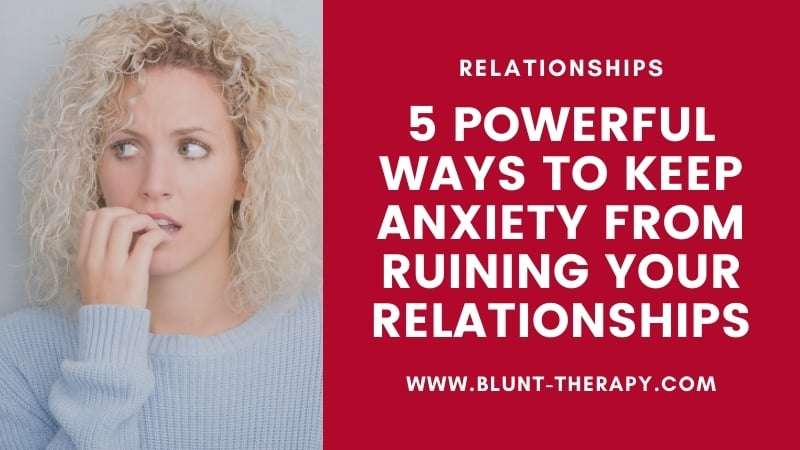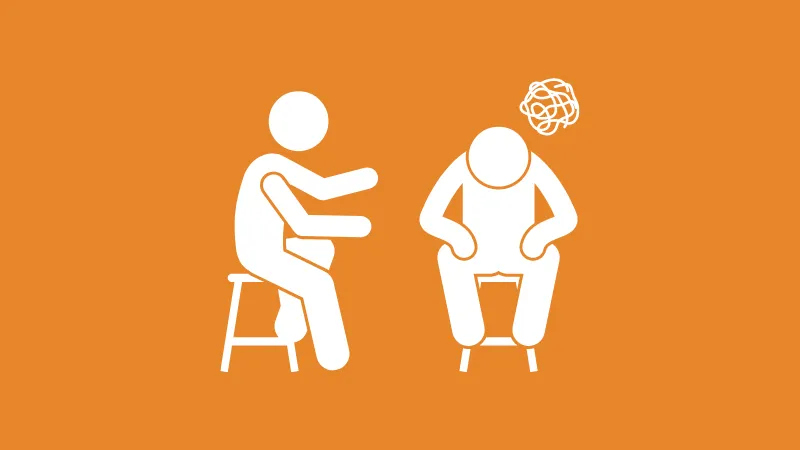Table of Contents
Affiliate link notice: As an affiliate of BetterHelp and other third-party vendors, We will receive compensation if you make a purchase using the links provided on this page. For more information, visit our disclosure page.
Last Updated on December 12, 2021 by Randy Withers, LCMHC
Breakups.
One of the most gut-wrenching experiences a person can have. One moment, a couple is madly in love. The next, their world is crashing down.
There are many reasons why relationships end. Sometimes, couples simply fall out of love. Other times, breakups stem from a betrayal or abusive behavior.
Whatever the reason, breakups are painful, confusing, and uncomfortable.
The aftermath of a breakup is tricky to navigate when life feels like it’s spinning out of control.
Here are the seven most common stages of a breakup and what to expect during each.

7 Stages of A Breakup
1. Confusion
The first stage of a breakup is the most confusing. Life is a whirlwind and nothing is normal. You might be in shock and not even fully realize what just happened.
There are going to be more questions than answers at this point. Thoughts can feel as if they’re spinning out of control.
“Is it really over?”
“What now?“
At times, the demise of a relationship is painfully clear. The next moment, things get… murky. Emotions run high. Nothing is certain.
It may still feel like there is a chance things could work out. That’s when the denial phase starts.
2. Denial
After the initial confusion stage comes denial. It’s not just a river in Egypt.
Denial is a refusal to accept reality. It’s a common reaction to a traumatic event like a breakup.
Denial, though, is an important stage. It needs to happen for us to realize that the breakup actually occurred.
But it’s easier said than done.
In the denial stage, you will believe there is a possibility that the relationship is fixable, even though it didn’t end well.
“Maybe it isn’t really over.”
“Maybe there’s still a chance .”
This idea can derail the need to heal and recover. You need to embrace reality. You two broke up for a reason.
Fear of the unknown keeps us from healing. It is too scary and painful to move on at this point. It’s easier to deny reality than it is to accept what happened.
3. Negotiating
After the realization that the relationship may be over sets in, panic ensues.
In this phase, you become willing to do anything to try to reconcile the relationship. You are prepared to overlook things that bothered or hurt you while you were a couple, even if it was a significant issue like abuse.
Even if your partner isn’t willing to change, you desperately try to negotiate with them.
You know deep down it isn’t going to work, but you continue to try to bargain anyway.
4. Relapse
At this point, the pain and desperation become so unbearable that you become willing to get back with your ex. This is often a coping mechanism rather than a long-term fix.
Some people do end up getting back together during this stage. It’s probably not even the first time you’ve tried.
However, if both of you are unwilling to work change what caused the relationship fail in the first place, it will fall apart again.
Getting back together may temporarily relieve the pain of a breakup. Unfortunately, if you don’t fix the main issues, it’s only a band-aid that delays healing.
5. Anger
Once you start to realize that your relationship is over for good, you will begin to feel angry.
While anger is often considered a negative emotion, it can be empowering after a breakup.
In this phase, you start to prioritize your needs. You grow angry when you realize your partner was not meeting these needs. That’s why you broke up in the first place.
You might also be angry at yourself for still holding a torch for your ex. But all that is totally normal.
Anger is often a positive emotion when healing from a breakup. Anger motivates us to move forward.
It can also provide the direction and clarity you need to propel yourself towards acceptance and healing.
6. Reluctant Acceptance
In this phase, you begin to accept the reality of the breakup.
It isn’t full acceptance, but it is a start.
At the beginning of the breakup, you were ambivalent about moving on. Now, the idea of returning to the relationship gives you the creeps.
You might not be fully ready to move on yet but you have accepted you need to.
7. Renewed Hope
Reluctant acceptance eventually turns into hope.
You begin to realize you will be okay without your ex.
This realization will come slowly.
Maybe you make it through the day without crying for the first time. Perhaps you rediscover a part of yourself that you lost in the relationship.
Soon, these minor victories turn into confidence. Things that once seemed impossible will become easier.
Even if everything isn’t perfect, there is hope.
Healing from Post Break-up Grief
Grief is a natural but complicated process.
It looks different for everyone, and factors such as past events, personality, and type of breakup can affect the experience.
The stages of a breakup are not always linear, either.
You will go through all of them, but not necessarily in the order they are listed. Some will take longer than others. Some you will go through numerous times.
It takes time to heal. There’s nothing wrong with that. You’ll have good days and bad days. Healing has ups and downs.
It is also not something that you need to do alone. It’s not a good idea to rush into your next relationship, but it is a good idea to reconnect with family and friends.
Use this time to develop a support system and connect other resources, like therapy. These days, you can get therapy on your smartphone.
Most importantly, breakups give us all an opportunity to rediscover ourselves again outside of a relationship.
If you need help to heal from a breakup, try BetterHelp, the #1 online counseling platform. Click here to get a discounted rate.









